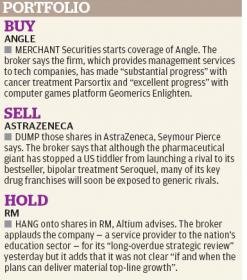Illumina expects results from its ovarian cancer biomarker study in early 2012 and is working on capturing ovarian cancer cells from body fluids, a company executive said last week.
The company also asserted that the MiSeq platform, to be commercialized later this year, will be suitable for diagnostic applications in cancer and other areas.
Illumina started its Cancer Discovery Initiative two years ago, focusing initially on ovarian and gastric cancer. Earlier this year, it added colorectal cancer to the program. Using next-generation sequencing, the company aims to discover biomarkers for early disease detection and prediction of therapy response or relapse, and to develop these markers into diagnostic tests.
Earlier this year, Illumina president and CEO Jay Flatley said the company is in the midst of validating ovarian cancer genes detected in 25 tumor-normal pairs by targeted sequencing in about 300 samples, a project to be completed by mid-year, with results expected by the end of the year (IS 1/18/2011).
During Illumina's first-quarter earnings call last week, Flatley revised this timeline slightly, saying that validation should be mostly completed by the end of the third quarter, and analysis by the end of the year, so "somewhere probably in Q1 [of 2012], we'll know what we have there."
In addition, as part of an effort to translate the results to the clinic, the company is applying a rare cell capture technology to see if it can detect ovarian cancer cells in body fluids. Those studies are "a very important part" of Illumina's translational work in ovarian cancer, Flatley said.
Illumina developed the proprietary rare cell capture technology in house (IS 1/18/2011) and plans to start offering it to third parties through its sequencing service business in the second quarter, he added.
The firm's gastric cancer biomarker discovery project is "three to five months behind" the ovarian cancer project, with validation sequencing ongoing, while the colorectal cancer project is "in the initial sequencing phases now," he said.
http://www.genomeweb.com/sequencing...arian-cancer-program-expects-clinical-apps-mi






 ..... thats what you get for leaving it @market!
..... thats what you get for leaving it @market!